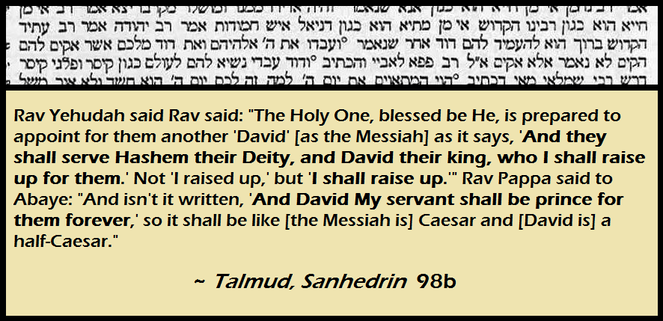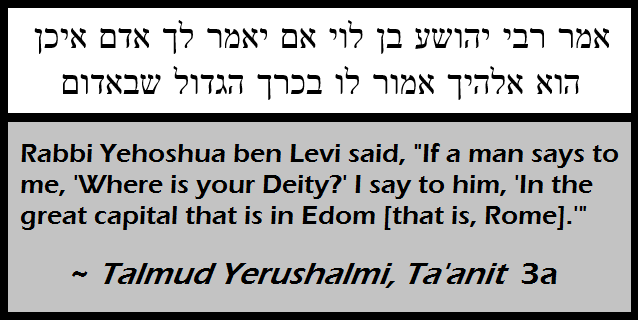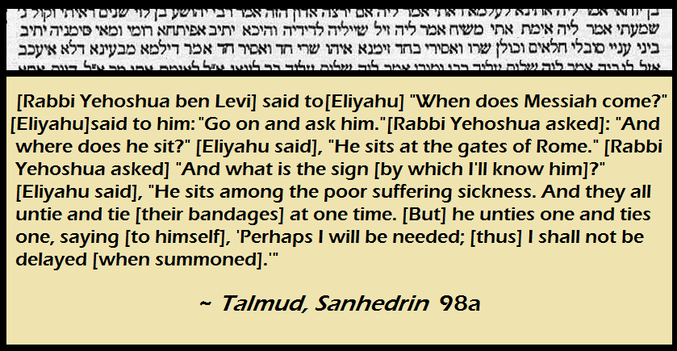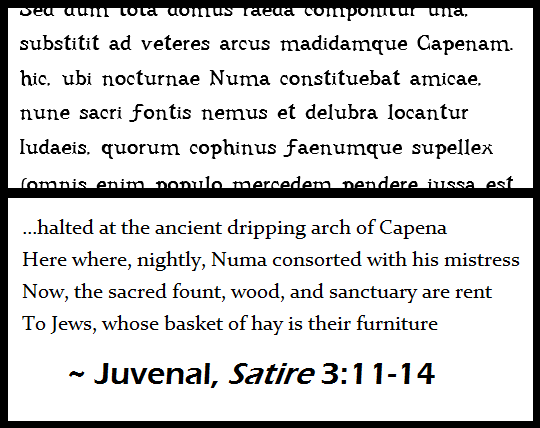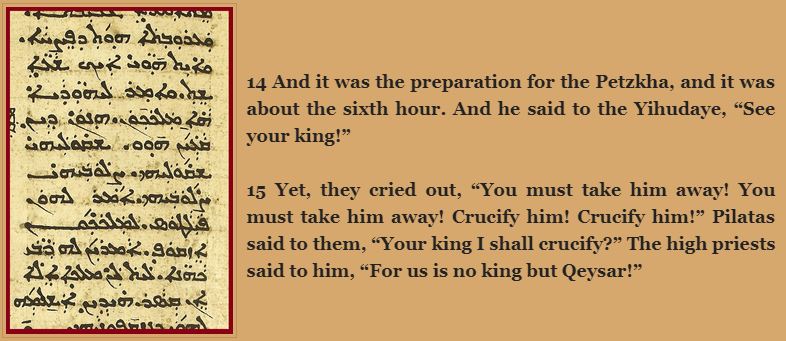ALL HAIL CAESAR
by Jeremy Chance Springfield
8/3/19
Scripture accords the Messiah many honorific titles.
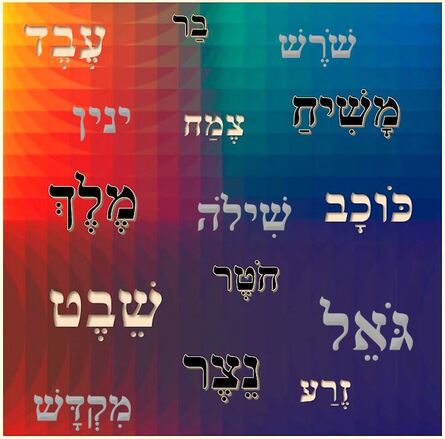
Servant.
Prince of Peace.
The Branch.
Son of Man.
King of Kings.
Rock.
Sanctuary.

Shared here are just a few examples from the Word. Many more could be mentioned, of course. Each one holds unique and rich spiritual truths about the nature and purpose of the Messiah in the plan of the Holy One for restoration of His rule upon this earth. Each is worthy of attention in study to appreciate the wealth contained in mankind’s redemption.
Likewise, the abundance of Jewish and Christian texts that have arisen over the millennia have also added to the lengthy list of appellations. Commentaries from Jewish writings and traditional Christian hymns are sources of all manner of additional titles. Inspired writers as well as insightful commentators have meditated upon the work of the one who will lead us into the everlasting Kingdom of the Holy One, and have offered us important portraits of what Messiah will exemplify in that vital role. Of these numerous other sobriquets, there is one that is rather curious due to its startlingly unusual nature. The closer look it merits reveals a beautiful and surprising nuance to the profound purpose of the Messiah.
Likewise, the abundance of Jewish and Christian texts that have arisen over the millennia have also added to the lengthy list of appellations. Commentaries from Jewish writings and traditional Christian hymns are sources of all manner of additional titles. Inspired writers as well as insightful commentators have meditated upon the work of the one who will lead us into the everlasting Kingdom of the Holy One, and have offered us important portraits of what Messiah will exemplify in that vital role. Of these numerous other sobriquets, there is one that is rather curious due to its startlingly unusual nature. The closer look it merits reveals a beautiful and surprising nuance to the profound purpose of the Messiah.
This peculiar title is found inside the ancient Jewish text of the Talmud Bavli, in tractate Sanhedrin, 98b. During a lengthy and fascinating discussion about the Messiah and the many intricacies of His coming to Israel, verses are brought up about His name and some of the titles He carries. It is in this context that we read the Talmudic excerpt.
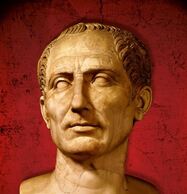
The rabbis have presented a unique idea in this passage that arose from attempting to explain the wording of Jeremiah 30:9 and Ezekiel 37:24. The seemingly contradictory prophetic statements that David shall function as both king and prince in the future Messianic era are reconciled in a surprising fashion. We are told here that Messiah [son of David] shall reign as Caesar, and David himself shall rule under him. The Greek loanword in the Hebrew text of the Talmud is QEYSAR, so there is no mistaking the intent of the text. While Messiah could have easily been referred to as MELEKH “king,” or SAR “prince,” or perhaps ROSH “ruler,” He is instead distinctly referred to with the peculiar title carried only by the emperors of Rome!
If this does not seem bizarre to you, let us consider for a moment all that comes with the title.
It is first encountered in the name Caius Julius Caesar, and henceforth, as homage to his perceived greatness, was adopted as a title of Roman emperors for several generations thereafter. Although a few suggestions of its etymology have been put forth, the precise meaning of the name has been lost to history. Rather, it is in the authority it carried as a title of the emperors of Rome that the name now holds its most important meaning. In such it bears the tone of supreme governing prowess and unstoppable military might.
If this does not seem bizarre to you, let us consider for a moment all that comes with the title.
It is first encountered in the name Caius Julius Caesar, and henceforth, as homage to his perceived greatness, was adopted as a title of Roman emperors for several generations thereafter. Although a few suggestions of its etymology have been put forth, the precise meaning of the name has been lost to history. Rather, it is in the authority it carried as a title of the emperors of Rome that the name now holds its most important meaning. In such it bears the tone of supreme governing prowess and unstoppable military might.
So significant was the influence of the title Caesar upon the nations of old that even after the glow of Rome’s peace and glory had faded through the centuries its phantom principality was still impressed upon the minds of men grasping for worldly power. From it the Russians assumed the title of Czar and the Germans the title of Kaiser. In these variant versions the name is recognizable in more modern times.
Indeed, the title of Caesar rings loud even now of supreme governing power.
Even more unique is the use of it by the Jewish teachers of old in connection to the righteous nature of the Messiah. Rome’s presence was the antithesis of all that the believer held dear. In fact, so ominous was the specter of Rome over Israel that the Holy One felt the need to prophesy its coming hundreds of years before it imposed its rule upon His people, as recorded in Daniel 7:23.
Indeed, the title of Caesar rings loud even now of supreme governing power.
Even more unique is the use of it by the Jewish teachers of old in connection to the righteous nature of the Messiah. Rome’s presence was the antithesis of all that the believer held dear. In fact, so ominous was the specter of Rome over Israel that the Holy One felt the need to prophesy its coming hundreds of years before it imposed its rule upon His people, as recorded in Daniel 7:23.
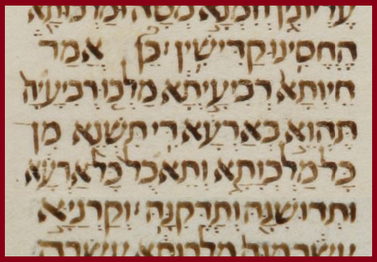
He said thus, “The fourth beast is the fourth kingdom on the earth. It shall be different from all kingdoms, and shall consume all the earth, and shall trample it, and shall shatter it.”
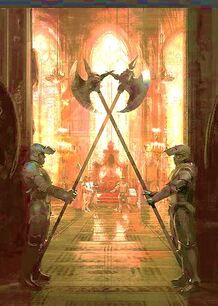
It was the time of the Gentiles in full swing upon the Jewish nation.
It was direct opposition to the dictates of the Torah.
To the Jewish minds, Rome was enemy number one. To thus find its most revered title of Caesar applied to the long-awaited righteous ruler who would topple the iron Roman fist of tyranny and bring about a world of true peace, glory, and righteous worship is a surprising reality. Messiah is the one who is supposed to defeat all the vestiges of Rome in the earth and enact an empire where righteousness stands in place of all wicked rule. In many ways Messiah should be viewed as the exact opposite of the cruel and self-serving emperors of Rome. How truly odd it would seem to bestow upon the Jewish Messiah a decidedly Gentile title! Assuming the title of Caesar should be the last thing a Jewish mind would ever expect.
And yet, the rabbis utilized this very title for the Messiah!
While we may think it strange to see such title used for the Messiah, Scripturally, we do actually have a parallel of scope and power between what we saw in the dominating presence of Rome and what we shall see is prophesied in the coming of the promised Messiah and the everlasting Kingdom over which Yeshua shall rule. Consider these few passages that speak of the encompassing Messianic reign to come.
It was direct opposition to the dictates of the Torah.
To the Jewish minds, Rome was enemy number one. To thus find its most revered title of Caesar applied to the long-awaited righteous ruler who would topple the iron Roman fist of tyranny and bring about a world of true peace, glory, and righteous worship is a surprising reality. Messiah is the one who is supposed to defeat all the vestiges of Rome in the earth and enact an empire where righteousness stands in place of all wicked rule. In many ways Messiah should be viewed as the exact opposite of the cruel and self-serving emperors of Rome. How truly odd it would seem to bestow upon the Jewish Messiah a decidedly Gentile title! Assuming the title of Caesar should be the last thing a Jewish mind would ever expect.
And yet, the rabbis utilized this very title for the Messiah!
While we may think it strange to see such title used for the Messiah, Scripturally, we do actually have a parallel of scope and power between what we saw in the dominating presence of Rome and what we shall see is prophesied in the coming of the promised Messiah and the everlasting Kingdom over which Yeshua shall rule. Consider these few passages that speak of the encompassing Messianic reign to come.
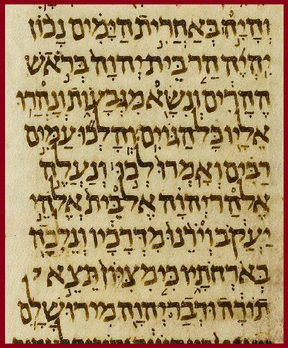
Isaiah 2:2-3
2 And it shall be in the latter days, the Mountain of the House of YHWH shall be established at the head of the mountains, and shall be over the hills, and unto it shall flow all the Gentiles.
3 And multitudes of peoples shall walk, and say, “Let us walk, and ascend unto the Mountain of YHWH, unto the House of the Deity of Ya’aqov, and He shall instruct us from His ways, and we shall walk in His paths!” For from Tziyon shall go forth the Instruction, and the Word of YHWH from Yerushala’im.
2 And it shall be in the latter days, the Mountain of the House of YHWH shall be established at the head of the mountains, and shall be over the hills, and unto it shall flow all the Gentiles.
3 And multitudes of peoples shall walk, and say, “Let us walk, and ascend unto the Mountain of YHWH, unto the House of the Deity of Ya’aqov, and He shall instruct us from His ways, and we shall walk in His paths!” For from Tziyon shall go forth the Instruction, and the Word of YHWH from Yerushala’im.
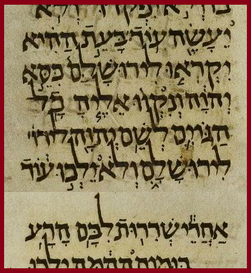
Jeremiah 3:17
At that time, they shall call Yerushala’im ‘The Throne of YHWH,’ and unto it shall be gathered all the Gentiles, to the name of YHWH, to Yerushala’im, and they shall not walk further after the hardness of their evil heart.
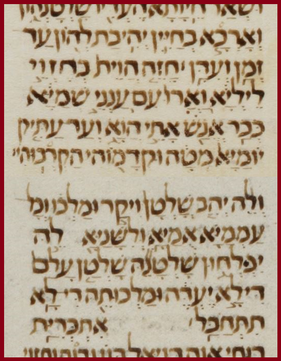
Daniel 7:13-14
13 I saw in the visions at night, and behold, with the clouds of heaven was as a son of man come, and he came unto the Ancient of Days, and they brought him near before Him.
14 And to him was given rule, and honor, and a kingdom, and all peoples, nations, and tongues shall serve him. His rule is an everlasting rule that shall not pass, and his kingdom which shall not be destroyed.
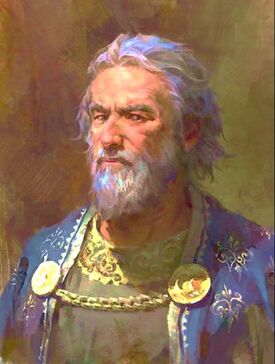
The witness of the Word displays a consonance of scope and power between Rome and the coming Messianic Kingdom. Just like the epitome of the pagan kingdom, Yeshua as King and Caesar shall sit as the head of all world government and demand fealty from the Gentiles. He will not be only the King of Israel. Rather, Messiah will stretch out His unstoppable hand of authority over all nations, so that He shall reign supreme over Gentiles as well as Jews, realizing to the fullest the call for Israel to be a light to the nations.
Once we can appreciate the scope of Messiah’s rule, we can begin to also understand this strange choice of referring to Him as Caesar. However, we as believers today have the further opportunity to see what the teachers of old saw in such surprising parallel if we will but look a little closer into what they had to say about Rome and its connection to the Messiah. With a proper Hebraic perspective of the matter, we can then even see preserved in the New Testament a passage that can be appreciated with newfound insight.
Turning again to the ancient text of the Talmud, but leaving behind the Bavli text and selecting instead the curious reading of Yerushalmi, we read in tractate Ta’anit 3a this truly astonishing statement.
Once we can appreciate the scope of Messiah’s rule, we can begin to also understand this strange choice of referring to Him as Caesar. However, we as believers today have the further opportunity to see what the teachers of old saw in such surprising parallel if we will but look a little closer into what they had to say about Rome and its connection to the Messiah. With a proper Hebraic perspective of the matter, we can then even see preserved in the New Testament a passage that can be appreciated with newfound insight.
Turning again to the ancient text of the Talmud, but leaving behind the Bavli text and selecting instead the curious reading of Yerushalmi, we read in tractate Ta’anit 3a this truly astonishing statement.
In this unexpected declaration, Rabbi Yehoshua ben Levi tells us that when asked where his Deity abides, he replies with the shocking answer that He is in the capital of Edom! This term of Edom, however, is not referencing the Middle Eastern land wherein Esau’s descendants dwelt but is meant rather as a substitution for the name Rome! In fact, Edom is used quite extensively within rabbinic writings as a code word intending to signify only Rome. Therefore, properly understood, he is telling us that the Deity of the Hebrews is not in Israel, but in Rome!
What an odd statement to make! What would compel this rabbi to even think to say such a thing? The answer is found only by bouncing back once more to the Talmud Bavli, in tractate Sanhedrin 98a. There, we read an amazing account recorded for us that helps to put the pieces together of this rabbinic puzzle.
What an odd statement to make! What would compel this rabbi to even think to say such a thing? The answer is found only by bouncing back once more to the Talmud Bavli, in tractate Sanhedrin 98a. There, we read an amazing account recorded for us that helps to put the pieces together of this rabbinic puzzle.
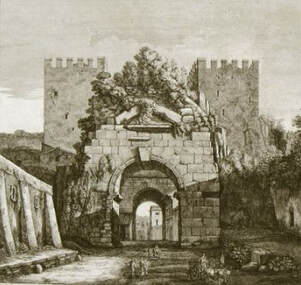
It is important first for the reader to note that this is speaking of the same rabbi as mentioned in the previous Talmudic quote, who said the Deity of the Hebrews was abiding in Rome. Here we are told that the same person, Rabbi Yehoshua ben Levi, had a conversation with Eliyahu, who informed him that the Messiah was waiting at the gates of Rome, of all places! Eliyahu even tells the rabbi that Messiah is seated with the poor and sick at Rome’s gate. The intent of this passage is deeply spiritual, and should not be understood as literal. However, the literal places are spoken of for a reason. Interestingly, in the ancient Servian Wall of the city of Rome was the gate known as Porta Capena, one of Rome’s main gates and out of which led the famous Appian Way. It was likely this very gate to which Eliyahu referred. This can be surmised by the writings of the ancient Roman poet Decimus Iunius Iuvenalis (Juvenal in popular reference), who wrote in his 3rd Satire a brief mention of the gate, and particularly that this gate alone was frequented by Jewish beggars.

Just as the poet spoke of afflicted Jews at the Porta Capena of Rome, the Talmud explained that at the gate of Rome the Messiah is seated with the poor and afflicted, and is Himself afflicted, in surprising mention. The link to the Messianic imagery of Isaiah 53 and the wounded and diseased Servant described at length there cannot be ignored. Furthermore, the way the text is worded when it comes to describing Messiah’s actions with the bandages is also hinting at something more than mere fleshly wounds, just like Isaiah 53 expounds. This is because the term here in the Talmud for “unties” is SEREY, and while able to mean “untie / loosen,” it can also be used in the sense of “forgive / absolve.” Additionally, the term for “ties” is ASIR, and can also mean “to imprison.” This ultimately amounts to a rabbinic wordplay in the Talmudic passage, which is not uncommon in the text. The fact that Messiah is said in the passage to address each bandage and wound separately means that the attention is an individual focus; some are “forgiven,” and some remain “captive.”
This second witness from the Talmud shows us why Rabbi Yehoshua ben Levi felt like he needed to say that his Deity was in Rome – the Holy One was waiting to summon Messiah from the gate where the beggars sat dressing their wounds!
The symbolic imagery thus shows us that the title Caesar is by no means an inappropriate referent to the Messiah. As unusual as it might at first seem, the precedent set by the ancient teachers of Scripture saw Messiah as linked strangely to Rome, even if they did not fully understand the identity or method by which Yeshua would fulfill those details. Even with all the animosity toward the Roman invaders, the rabbis still felt it was proper to refer to the coming King as Caesar. This declaration that their Messianic King could be called Caesar brings us to an intriguing statement made in the New Testament. In John 19:14-15, when the Roman governor, Pontius Pilate, sought to free Yeshua from captivity and the threat of death as Passover loomed, the crowds, incited by the religious elite in opposition to Yeshua’s dangerous position as possibly being heralded as Israel’s new king in defiance of Rome, were quick to pledge unlikely allegiance to the title of the ruler of Rome.
This second witness from the Talmud shows us why Rabbi Yehoshua ben Levi felt like he needed to say that his Deity was in Rome – the Holy One was waiting to summon Messiah from the gate where the beggars sat dressing their wounds!
The symbolic imagery thus shows us that the title Caesar is by no means an inappropriate referent to the Messiah. As unusual as it might at first seem, the precedent set by the ancient teachers of Scripture saw Messiah as linked strangely to Rome, even if they did not fully understand the identity or method by which Yeshua would fulfill those details. Even with all the animosity toward the Roman invaders, the rabbis still felt it was proper to refer to the coming King as Caesar. This declaration that their Messianic King could be called Caesar brings us to an intriguing statement made in the New Testament. In John 19:14-15, when the Roman governor, Pontius Pilate, sought to free Yeshua from captivity and the threat of death as Passover loomed, the crowds, incited by the religious elite in opposition to Yeshua’s dangerous position as possibly being heralded as Israel’s new king in defiance of Rome, were quick to pledge unlikely allegiance to the title of the ruler of Rome.

Their almost unbelievable words speak volumes in a new light. In this moment of apparent darkness, the Jewish people claimed as king the title of a Gentile who stood opposed to all that the Holy One loved. And yet, also in this moment of apparent darkness, they made a decision to utterly wound Yeshua in such a manner that He would become for them the Messiah who would sit at the gates of Rome, tending the wounds, forgiving and binding, until the Holy One calls for Him to come and rule over Israel and the world entire by the Gentile title of Caesar.
This passage that seems so brutal and to be a moment of abandoning all that Israel had hoped for in a righteous king is thus seen with keener insight to be a moment where they laid claim to the Messiah both as the Suffering Servant and as the triumphant King of the world. The title Caesar bestowed by the rabbis of old upon the Messiah now makes perfect sense. With the eyes of the spirit, we too can join them in fresh understanding that the Messiah we all await will be much more than the king of the Jews; He will rule as King of Jew and Gentile alike. He will sit enthroned at Jerusalem as the King of Kings, with the world entire underneath His feet! At that moment of unity between every inhabitant of the earth, all hail Caesar.
Knowing the reality of the coming Messianic reign upon the earth, we can echo the real truth of their sentiment uttered so long ago: We have no king but Caesar!
This passage that seems so brutal and to be a moment of abandoning all that Israel had hoped for in a righteous king is thus seen with keener insight to be a moment where they laid claim to the Messiah both as the Suffering Servant and as the triumphant King of the world. The title Caesar bestowed by the rabbis of old upon the Messiah now makes perfect sense. With the eyes of the spirit, we too can join them in fresh understanding that the Messiah we all await will be much more than the king of the Jews; He will rule as King of Jew and Gentile alike. He will sit enthroned at Jerusalem as the King of Kings, with the world entire underneath His feet! At that moment of unity between every inhabitant of the earth, all hail Caesar.
Knowing the reality of the coming Messianic reign upon the earth, we can echo the real truth of their sentiment uttered so long ago: We have no king but Caesar!
All study contents Copyright Jeremy Chance Springfield, except for graphics and images, which are Copyright their respective creators.
